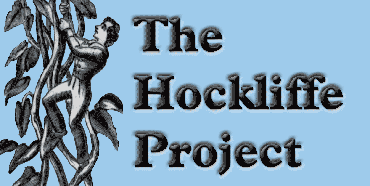

 |
|
 |
| Previous | Next |
| Author: | Elliott, Mary (Belson) |
| Title: | Plain things for little folks; seasoned with instruction, both for the mind and the eye. By their friend, Mary Elliott |
| Cat. Number: | 0541 |
| Date: | No date but 1823 |
| 1st Edition: | 1823? |
| Pub. Place: | London |
| Publisher: | William Darton, 58, Holborn Hill |
| Price: | 1s |
| Pages: | 1 vol., 24pp. |
| Size: | 17 x 10.5 cm |
| Illustrations: | Twelve pages of engravings, with two images on each page |
| Note: | Second page of illustrations carries the date 14 June 1823, which is corroborated by a watermark from the same year. Inscription on fly-leaf: 'Edw'd George Jepson/from/Lincoln 9th Decr. 1823' |
Images of all pages of this book
Plain Things for Little Folks contains twenty-four fine engravings, each captioned by a short verse stanza, and accompanied by a paragraph or two of text. The texts, both verse and prose, generally explain what is occurring in the illustrations, and add a moral dimension. The texts which accompany the image of a 'Cottage Boy', for instance, explain that though he is poor, his is not a hard fate, for he sleeps easy in his bed, free from worry and care (p.9). 'Providence has surely placed us in that rank most suited to our powers,' the reader learns, 'and we should submit to its decree without repining.' (p.10)
Most of these tableau depict life in the countryside, and several are designed to explain the relationship between humans and animals. Rabbit-snaring, and the catching of moles, birds and rats are all described. So too is the harpooning of whales (p.5). Though these may be cruel, we are told, they are necessary if humans are to thrive. So long as no unnecessary cruelty is involved, one should not object. Elliott even acknowledges the legitimacy of man-traps to catch thieves (and the picture is genuinely gruesome: plate 13). Even though the theft is merely of a few apples, Elliott regrets, 'he who takes one apple not his own, is a thief, and defies the command of his Creator'. The use of apples as the subject of Elliott's lesson was surely designed to make the text relevant to at an audience of children, as well as being rooted in Christian theology. Yet, Elliott wishes the thief had been caught by a less barbaric means. 'To watch and detect crime is right,' she knows, 'but we may be humane even in the method of securing a thief.' (p.14)
Elliott worked almost entirely for Darton's Quaker publishing house, and a Quaker tendency is perhaps observable is some of her descriptions. She exults in British trade, for example, but laments that great ships are used also for military purposes. 'Go not on board this man of war', she says in the caption to the picture of a ship, 'Its freight is only wounds and scars.' (plate 15) She objects to corporal punishment too, preferring to shame lazy or stupid dunces into greater effort (p.20). Many of her concerns are common to almost all early nineteenth century children's literature though. She likes to see girls playing with dolls (plate 17) and boys learning gardening (plate 5), for example, and she hates laziness (p.18) and commends cleanliness and neatness. 'Do but look at the savage tribes of Africa and other distant parts;' she says, as if to prove this last point, 'how disgusting appears their matted and greasy hair! Who would desire to look as they do...?' (p.21f).
Little is known about Mary Belson (1794?-1870), save the date of her marriage to Mr. Elliott, in 1819. She wrote her books for children under both her maiden and married name, and the Hockliffe Collection has several of her works: 0105, 0106, 0540 (which is evidently part of the same loose series as Plain Things), 0732 and 0768. For a checklist of Elliott's work, see Moon 1987b. According to Marjorie Moon's checklist there were several subsequent editions of Plain Things, one in c.1824, a second in c.1825-30, a third in c.1830 and a fourth in 1853.
Moon, Marjorie, The Children's Books of Mary (Belson) Elliott blending Sound Christian Principles with Cheerful Culitvation. A Bibliography, Winchester: St. Paul's Bibliographies, 1987